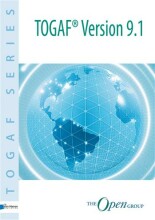Summary: Psychology Of Illness
- This + 400k other summaries
- A unique study and practice tool
- Never study anything twice again
- Get the grades you hope for
- 100% sure, 100% understanding
Read the summary and the most important questions on Psychology of Illness
-
Stress & Illness
This is a preview. There are 45 more flashcards available for chapter 16/01/2017
Show more cards here -
What kind of changes does stress involve? (4 points)
Biochemical, physiological, behavioural and psychological changes -
What does stress (fight or flight response) activate?
Stress (fight or flight response) activates various hormonal changes e.g. cortisol is released into the bloodstream, releasing adrenaline --> think HPA axis
- The release of these biochemicals may have long-term detrimental effects -
What is the stress-illness indirect pathway?
Stress might affect people’s smoking/drinking/eating habits which in turn may make people become ill -
What are the 3 main direct pathways in which stress may increase someone’s risk of disease?
1. Stress causes increased heart rate and blood pressure = increased risk of disease
2. Impact of stress hormones on immune processes - corticosteroid suppresses immune system = increased risk of disease
3. Stress causes disturbance of the digestive system = increased risk of disease -
What is the fight of flight mechanism?
The hypothalamus signals the adrenal glands to produce adrenaline when there is a stressor -
Stress affects adrenaline. What does this then cause?
Stress effects adrenaline = which effects blood pressure = cardiovascular disease
--> chain reaction -
What did Matthews et al. (2004) investigate? What did they find?
Sample of 4000 people; longitudinal study of 30 years
Method: Examined how a stressful task affected participants' blood pressure
Results: found that those people who had a larger change on blood pressure were more likely to have hypertension 30 years later
i.e. Young adults who show a large BP response to psychological stress may be at risk for hypertension
= potential causal chain of effects that may cause a risk of high blood pressure in later life
(Hypertension = to do with high blood pressure)
Paper: http://circ.ahajournals.org/content/110/1/74.full -
What did Tawakol et al. (2017) investigate? What did they find?
Looked at relationships between patients and amygdala activity
– they examined whether amygdala activity had a causal effect on cardiovascular disease
- Used PET scan
- Looked at bone marrow, spline activity, inflammation of arteries
- Follow up 4 years later to see who had developed cardiovascular disease
Results = link between higher amygdala activity and cardiovascular disease 4 years later = amygdala increases bone marrow and white blood cells
Conc: emotional stressors can lead to cardiovascular disease through amygdalar activity
Amygdala = related to anxiety, fear, and stress response -
How can stress affect gastrointestinal disorders?
- Stress can inhibit gastric emptying (emptying of the stomach) and stimulate colonic motor function (Tache et al., 2001)
- IBS (irritable bowel syndrome) may be triggered by the immune system which is affected by stress (Giovanni et al., 2011)
- Stress can inhibit gastric emptying (emptying of the stomach) and stimulate colonic motor function (Tache et al., 2001)
-
What did Segerstrom & Miller (2004) investigate? What did they find?
Meta-analysis of articles describing a relationship between stress and parameters of the immune system
(see slide 11 + notes on slide 11)
READ THIS PAPER: https://www.ncbi.nlm.nih.gov/pmc/articles/PMC1361287/
- Higher grades + faster learning
- Never study anything twice
- 100% sure, 100% understanding

































